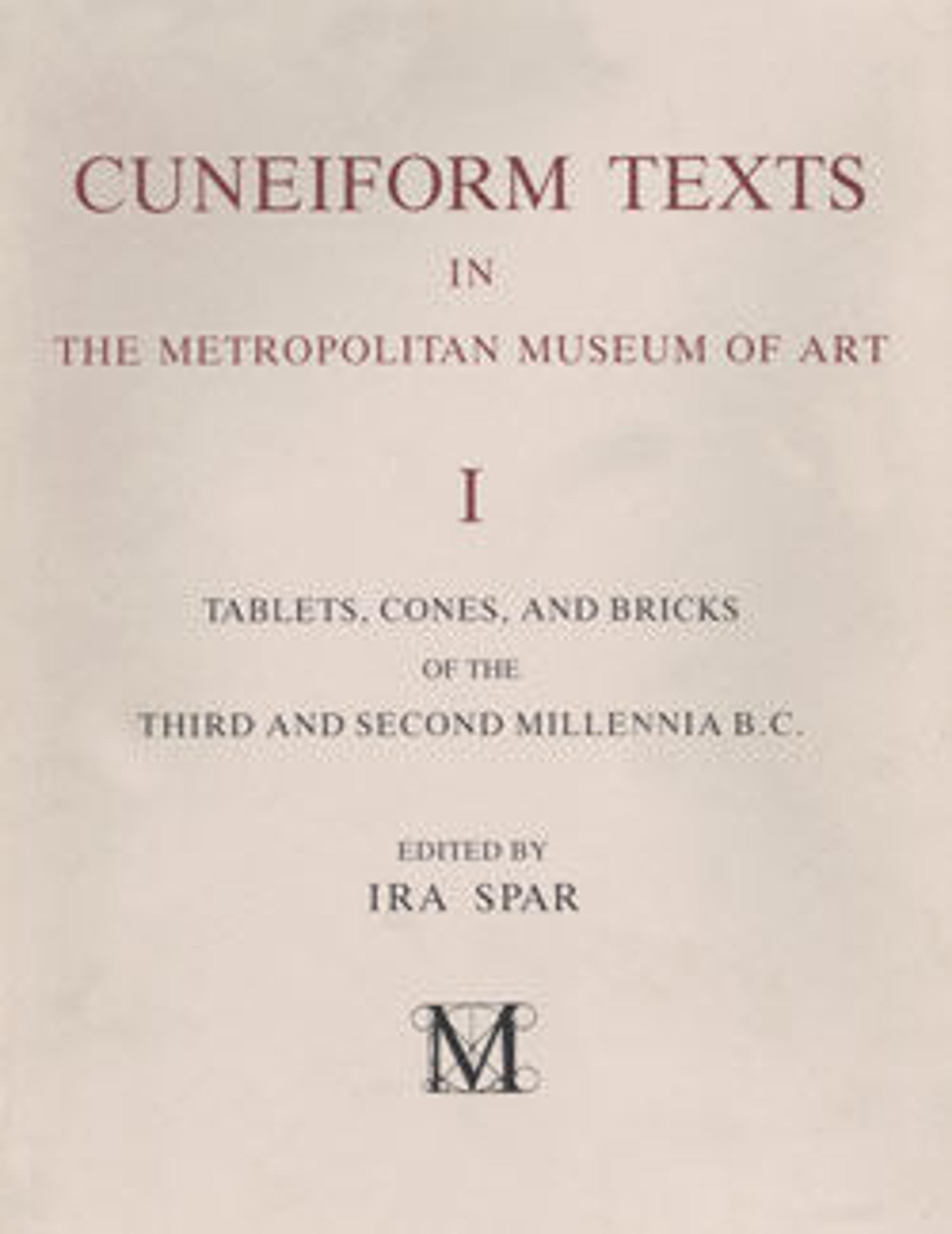Cuneiform tablet case impressed with cylinder seal, for cuneiform tablets 1983.135.4a, b: private letter
Kültepe, the ancient city of Kanesh, was part of the network of trading settlements established in central Anatolia by merchants from Ashur (in Assyria in northern Mesopotamia) in the early second millennium B.C. Travelling long distances, and often living separately from their families, these merchants traded vast quantities of goods, primarily tin and textiles, for Anatolian copper and other materials. Although the merchants adopted many aspects of local Anatolian life, they brought with them Mesopotamian tools used to record transactions: cuneiform writing, clay tablets and envelopes, and cylinder seals. Using a simplified version of the elaborate cuneiform writing system, merchants tracked loans as well as business deals and disputes, and sent letters to families and business partners back in Ashur. At Kültepe, thousands of these texts stored in household archives were preserved when fire destroyed the city in ca. 1836 B.C. Because the tablets document the activities of Assyrian merchants, they provide a glimpse into the complex and sophisticated commercial interactions that took place in the Near East during the beginning of the second millennium B.C.
This clay envelope or case was used to hold two small tablets (MMA 1983.135.4a, b) that comprise a letter from a merchant to his family. A cylinder seal was rolled twice across the reverse of the case. The seal impressions shows a scene in which a worshipper approaches the sun god. Behind this figure, a suppliant goddess and the warrior goddess Ishtar appear. These figures, along with the nude youth with a forelock who stands on a platform and carries a bucket, evoke Mesopotamian motifs, and show how merchants living abroad may have retained their sense of identity through personal possessions. Cuneiform writing on the obverse of the case indicates the recipients of the letter, and identifies the seal impression as that of Ashur-muttabbil, who wrote the missive.
This clay envelope or case was used to hold two small tablets (MMA 1983.135.4a, b) that comprise a letter from a merchant to his family. A cylinder seal was rolled twice across the reverse of the case. The seal impressions shows a scene in which a worshipper approaches the sun god. Behind this figure, a suppliant goddess and the warrior goddess Ishtar appear. These figures, along with the nude youth with a forelock who stands on a platform and carries a bucket, evoke Mesopotamian motifs, and show how merchants living abroad may have retained their sense of identity through personal possessions. Cuneiform writing on the obverse of the case indicates the recipients of the letter, and identifies the seal impression as that of Ashur-muttabbil, who wrote the missive.
Artwork Details
- Title:Cuneiform tablet case impressed with cylinder seal, for cuneiform tablets 1983.135.4a, b: private letter
- Period:Middle Bronze Age–Old Assyrian Trading Colony
- Date:ca. 20th–19th century BCE
- Geography:Anatolia, probably from Kültepe (Karum Kanesh)
- Culture:Old Assyrian Trading Colony
- Medium:Clay
- Dimensions:4.9 x 4.9 x 2.1 cm (1 7/8 x 1 7/8 x 7/8 in.)
- Credit Line:Bequest of Edith Aggiman, 1982
- Object Number:1983.135.4c
- Curatorial Department: Ancient West Asian Art
More Artwork
Research Resources
The Met provides unparalleled resources for research and welcomes an international community of students and scholars. The Met's Open Access API is where creators and researchers can connect to the The Met collection. Open Access data and public domain images are available for unrestricted commercial and noncommercial use without permission or fee.
To request images under copyright and other restrictions, please use this Image Request form.
Feedback
We continue to research and examine historical and cultural context for objects in The Met collection. If you have comments or questions about this object record, please contact us using the form below. The Museum looks forward to receiving your comments.
